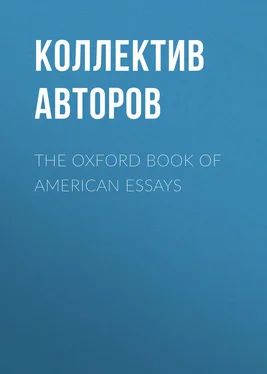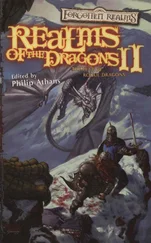Коллектив авторов - The Oxford Book of American Essays
Здесь есть возможность читать онлайн «Коллектив авторов - The Oxford Book of American Essays» — ознакомительный отрывок электронной книги совершенно бесплатно, а после прочтения отрывка купить полную версию. В некоторых случаях можно слушать аудио, скачать через торрент в формате fb2 и присутствует краткое содержание. Жанр: foreign_antique, foreign_prose, на английском языке. Описание произведения, (предисловие) а так же отзывы посетителей доступны на портале библиотеки ЛибКат.
- Название:The Oxford Book of American Essays
- Автор:
- Жанр:
- Год:неизвестен
- ISBN:нет данных
- Рейтинг книги:5 / 5. Голосов: 1
-
Избранное:Добавить в избранное
- Отзывы:
-
Ваша оценка:
- 100
- 1
- 2
- 3
- 4
- 5
The Oxford Book of American Essays: краткое содержание, описание и аннотация
Предлагаем к чтению аннотацию, описание, краткое содержание или предисловие (зависит от того, что написал сам автор книги «The Oxford Book of American Essays»). Если вы не нашли необходимую информацию о книге — напишите в комментариях, мы постараемся отыскать её.
The Oxford Book of American Essays — читать онлайн ознакомительный отрывок
Ниже представлен текст книги, разбитый по страницам. Система сохранения места последней прочитанной страницы, позволяет с удобством читать онлайн бесплатно книгу «The Oxford Book of American Essays», без необходимости каждый раз заново искать на чём Вы остановились. Поставьте закладку, и сможете в любой момент перейти на страницу, на которой закончили чтение.
Интервал:
Закладка:
As Emerson trod in the footsteps of Bacon so Washington Irving walked in the trail blazed by Steele and Addison and Goldsmith; and Franklin earlier, although his essays are in fact only letters, had revealed his possession of the special quality the essay demands, – the playful wisdom of a man of the world who is also a man of letters. Indeed, Dr. Franklin was far better fitted to shine as an essayist than his more ponderous contemporary, Dr. Johnson; certainly Franklin would never have "made little fishes talk like whales." And in the nineteenth century the American branch of English literature has had a group of essayists less numerous than that which adorned the British branch, but not less interesting or less important to their own people.
Among these American essayists we may find all sorts and conditions of writers, – poets adventuring themselves in prose, novelists eschewing story-telling, statesmen turning for a moment to matters of less weight, men of science and men of affairs chatting about themselves and airing their opinions at large. In their hands, as in the hands of their British contemporaries, the essay remains infinitely various, refusing to conform to any single type, and insisting on being itself and on expressing its author. We find in the best of these American essayists the familiar style and the everyday vocabulary, the apparent simplicity and the seeming absence of effort, the horror of pedantry and the scorn of affectation, which are the abiding characteristics of the true essay. We find also the flavor of good talk, of the sprightly conversation that may sparkle in front of a wood fire and that often vanishes with the curling blue smoke.
It is the bounden duty of every maker of an anthology to set forth the principles that have guided him in the choice of the examples he is proffering to the public. The present editor has excluded purely literary criticism, as not quite falling within the boundaries of the essay, properly so-called. Then he has avoided all set orations, although he has not hesitated to include more than one paper originally prepared to be read aloud by its writer, because these examples seemed to him to fall within the boundaries of the essay. (Nearly all of Emerson’s essays, it may be noted, had been lectures in an early stage of their existence.) Furthermore he has omitted all fiction, strictly to be so termed, although he would gladly have welcomed an apologue like Mark Twain’s "Traveling with a Reformer," which is essentially an essay despite its use of dialogue. He has included also Franklin’s "Dialogue with the Gout," which is instinct with the true spirit of the essay; and he has accepted as essays Franklin’s "Ephemera" and "The Whistle," although they were both of them letters to the same lady. As the essay flowers out of leisure and out of culture, and as there has been in the United States no long background of easy tranquillity, there is in the American branch of English literature a relative deficiency in certain of the lighter forms of the essay more abundantly represented in the British branch; and therefore the less frequent examples of these lighter forms have here been companioned by graver discussions, never grave enough, however, to be described as disquisitions. Finally, every selection is presented entire, except that Dana’s paper on Kean’s acting has been shorn of a needless preparatory note.
BRANDER MATTHEWS.[The essays by Ralph Waldo Emerson, Nathaniel Hawthorne, Oliver Wendell Holmes, Henry D. Thoreau, Thomas Wentworth Higginson, Charles Dudley Warner, and John Burroughs, are used by permission of, and by arrangement with, The Houghton Mifflin Company, the authorized publishers of their works. The essays by George William Curtis and by William Dean Howells are used by permission of Harper and Brothers. The essays by William Crary Brownell, Edward Sanford Martin, Nicholas Murray Butler, and Theodore Roosevelt are printed by permission of Charles Scribner’s Sons, the essay by Charles William Eliot by permission of The Century Company, and that by Henry James by permission of The Macmillan Company.]
THE EPHEMERA: AN EMBLEM OF HUMAN LIFE
TO MADAME BRILLON, OF PASSY
BENJAMIN FRANKLIN
YOU may remember, my dear friend, that when we lately spent that happy day in the delightful garden and sweet society of the Moulin Joly, I stopped a little in one of our walks, and stayed some time behind the company. We had been shown numberless skeletons of a kind of little fly, called an ephemera, whose successive generations, we were told, were bred and expired within the day. I happened to see a living company of them on a leaf, who appeared to be engaged in conversation. You know I understand all the inferior animal tongues. My too great application to the study of them is the best excuse I can give for the little progress I have made in your charming language. I listened through curiosity to the discourse of these little creatures; but as they, in their national vivacity, spoke three or four together, I could make but little of their conversation. I found, however, by some broken expressions that I heard now and then, they were disputing warmly on the merit of two foreign musicians, one a cousin , the other a moscheto ; in which dispute they spent their time, seemingly as regardless of the shortness of life as if they had been sure of living a month. Happy people! thought I; you are certainly under a wise, just, and mild government, since you have no public grievances to complain of, nor any subject of contention but the perfections and imperfections of foreign music. I turned my head from them to an old gray-headed one, who was single on another leaf, and talking to himself. Being amused with his soliloquy, I put it down in writing, in hopes it will likewise amuse her to whom I am so much indebted for the most pleasing of all amusements, her delicious company and heavenly harmony.
"It was," said he, "the opinion of learned philosophers of our race, who lived and flourished long before my time, that this vast world, the Moulin Joly, could not itself subsist more than eighteen hours; and I think there was some foundation for that opinion, since, by the apparent motion of the great luminary that gives life to all nature, and which in my time has evidently declined considerably towards the ocean at the end of our earth, it must then finish its course, be extinguished in the waters that surround us, and leave the world in cold and darkness, necessarily producing universal death and destruction. I have lived seven of those hours, a great age, being no less than four hundred and twenty minutes of time. How very few of us continue so long! I have seen generations born, flourish, and expire. My present friends are the children and grandchildren of the friends of my youth, who are now, alas, no more! And I must soon follow them; for, by the course of nature, though still in health, I cannot expect to live above seven or eight minutes longer. What now avails all my toil and labor in amassing honey-dew on this leaf, which I cannot live to enjoy! What the political struggles I have been engaged in for the good of my compatriot inhabitants of this bush, or my philosophical studies for the benefit of our race in general! for in politics what can laws do without morals? Our present race of ephemeræ will in a course of minutes become corrupt, like those of other and older bushes, and consequently as wretched. And in philosophy how small our progress! Alas! art is long, and life is short! My friends would comfort me with the idea of a name they say I shall leave behind me; and they tell me I have lived long enough to nature and to glory. But what will fame be to an ephemera who no longer exists? And what will become of all history in the eighteenth hour, when the world itself, even the whole Moulin Joly, shall come to its end and be buried in universal ruin?"
Читать дальшеИнтервал:
Закладка:
Похожие книги на «The Oxford Book of American Essays»
Представляем Вашему вниманию похожие книги на «The Oxford Book of American Essays» списком для выбора. Мы отобрали схожую по названию и смыслу литературу в надежде предоставить читателям больше вариантов отыскать новые, интересные, ещё непрочитанные произведения.
Обсуждение, отзывы о книге «The Oxford Book of American Essays» и просто собственные мнения читателей. Оставьте ваши комментарии, напишите, что Вы думаете о произведении, его смысле или главных героях. Укажите что конкретно понравилось, а что нет, и почему Вы так считаете.












